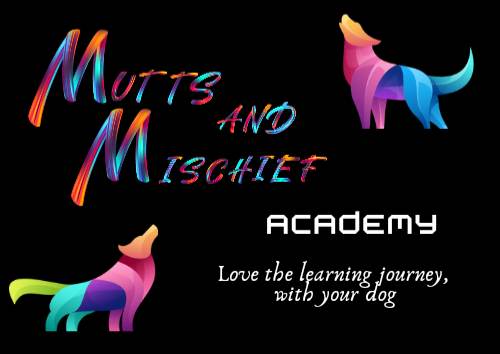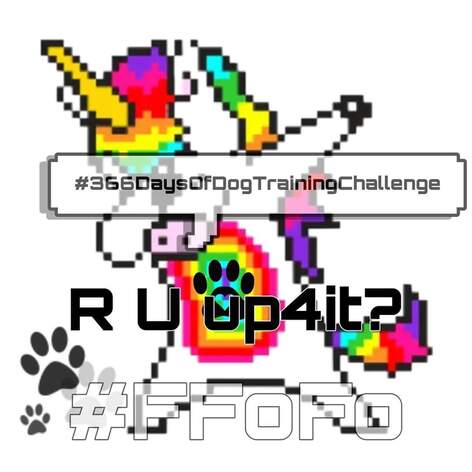|
Your dog doesn't need obedience, what they actually need is…
Having a loving and secure relationship with your dog goes beyond just obedience. It establishes a bond of mutual trust and understanding between you and your dog, which ultimately leads to a much healthier and fulfilling relationship. A secure attachment with your dog means that your dog feels safe and comfortable when they're around you, and they trust you to take care of them. This trust and security leads to a healthier relationship with your dog, as and a secure basis for them meaning they're less likely to exhibit destructive or unwanted behaviours out of fear or anxiety. (1) On the other hand, an emphasis on obedience without a foundation of love and security can lead to a strained relationship between you and your dog. This approach often involves the use of force or harsh training techniques, which can result in your pet feeling scared, anxious, or even resentful towards you. This can also result in relinquishment to rescue and shelters. (2) Traditional obedience training techniques are based on the premise of establishing dominance over the dog in order to control its behaviour. This approach often involves using physical punishment or aversive methods, such as shock collars, choke chains or prong collars, to correct undesirable behaviour. Or in other kinds of obedience that aren't traditional, a general belief system can be that the dogs behaviour needs fixing or the dog is failing at the behaviours being asked, causing further frustration and damage to the relationship. Research has shown that using physical punishment to train dogs can have significant negative effects on their physical and emotional well-being. Studies have found that dogs subjected to aversive training methods often exhibit increased fear and anxiety, as well as heightened aggression towards both humans and other dogs. Furthermore, the use of punishment-based techniques can disrupt the bond between the dog and guardian, leading to a breakdown in communication and trust. Instead of fostering a positive relationship between guardian and dog, traditional obedience training can create fear and stress for the dog, making them less likely to want to participate. (3) In contrast, positive reinforcement training techniques, which involve rewards and praise for desirable behaviour combined with fostering a secure attachment based relationship, are more effective and humane ways to train dogs. These methods are centred around building a strong bond of trust and communication between guardian and dog, resulting in a happier, healthier dog. It is important to consider the potential negative effects of traditional obedience training on dogs and prioritise the use of positive reinforcement techniques. By doing so, we can ensure that our dogs are happy, healthy, and emotionally secure members of our families. In summary, a loving and secure relationship with your dog is more important than obedience because it establishes a foundation of trust and mutual respect, leading to healthier behaviours and a more enjoyable companionship. Of course absolutely engage in training skills, especially through games but focus on consent and activities your dog can enjoy through game based learning. Try continuously reinforcing your dog instead of differential reinforcement, set them up for success by keeping them under threshold and ask for alternative behaviours to reinforce rather than corrections or witholding rewards. References Vieira de Castro, A.C. et al. (2021) “Improving dog training methods: Efficacy and efficiency of reward and mixed training methods,” PLOS ONE, 16(2). Available at: https://doi.org/10.1371/journal.pone.0247321 Hiby, E.F., Rooney, N.J. and Bradshaw, J.W.S. (2004) “Dog training methods: Their use, effectiveness and interaction with behaviour and Welfare,” Animal Welfare, 13(1), pp. 63–69. Available at: https://doi.org/10.1017/s0962728600026683 Bennett, P.C. and Rohlf, V.I. (2007) “Owner-companion dog interactions: Relationships between demographic variables, potentially problematic behaviours, training engagement and shared activities,” Applied Animal Behaviour Science, 102(1-2), pp. 65–84. Available at: https://doi.org/10.1016/j.applanim.2006.03.009.
0 Comments
Leave a Reply. |
BlogFor Mutts & Mischief If you enjoy my blogs and
would like to support my work, you can support me by buying me a Coffee! Archives
July 2024
|
Or are you looking for support and would like to get to know us better?
If the answer is yes then click the image below to join my free facebook group. What is Mutts & Mischief Community?
So it is what it says on the tin! Its a community that is international of Clients and Colleagues with the most supportive and friendly people on the planet. Dog Trainers and Behaviourists from all over the world!
Why did I set up such a mammoth group?
I wanted to have a group exclusively for Clients. For support and to meet uo and build on friendships from Classes or One to Ones. I want Clients to see you are not alone with your Dog and the problem you maybe having that you are not the first and won't be the last! I wanted a safe place where Clients could trade stories good and bad in one place for free!
I also wanted a safe place for the Trainers and Behaviourists I mentor within Social Media Platforms.
Why do this for free?
Because when I say I offer an holistic service I really do. It isn't about the money it is about you and your dogs. You and your dogs are all that matter.
So I wanted to encourage people to do homework and build better quality relationships with their dogs. So 3 years ago I had a mad idea and set up the 100 days of dog training challenge. Once a day people would spend 5 minutes plus training their dog. Recording it and uploading their video onto the Community. Every participant recieved a Certificate.
What I didn't count on was how many Professionals wanted to join and how fast word would spread. So this year 2020 I set up a 366 days of dog training challenge.
We have Clients in America, Greece, Norway, Denmark and Spain. We have Trainers from Greece, Norway, Isle of Wight, America and many more Countries. As well as dog trainers and trainee behaviourists: I mentor all over the world.
So again yes this group is free. It is still primarily for clients and for people to get to know me but we also have the challenge running. Again for free. So if you want to join click the image below to be taken to the group directly. See you there!
So it is what it says on the tin! Its a community that is international of Clients and Colleagues with the most supportive and friendly people on the planet. Dog Trainers and Behaviourists from all over the world!
Why did I set up such a mammoth group?
I wanted to have a group exclusively for Clients. For support and to meet uo and build on friendships from Classes or One to Ones. I want Clients to see you are not alone with your Dog and the problem you maybe having that you are not the first and won't be the last! I wanted a safe place where Clients could trade stories good and bad in one place for free!
I also wanted a safe place for the Trainers and Behaviourists I mentor within Social Media Platforms.
Why do this for free?
Because when I say I offer an holistic service I really do. It isn't about the money it is about you and your dogs. You and your dogs are all that matter.
So I wanted to encourage people to do homework and build better quality relationships with their dogs. So 3 years ago I had a mad idea and set up the 100 days of dog training challenge. Once a day people would spend 5 minutes plus training their dog. Recording it and uploading their video onto the Community. Every participant recieved a Certificate.
What I didn't count on was how many Professionals wanted to join and how fast word would spread. So this year 2020 I set up a 366 days of dog training challenge.
We have Clients in America, Greece, Norway, Denmark and Spain. We have Trainers from Greece, Norway, Isle of Wight, America and many more Countries. As well as dog trainers and trainee behaviourists: I mentor all over the world.
So again yes this group is free. It is still primarily for clients and for people to get to know me but we also have the challenge running. Again for free. So if you want to join click the image below to be taken to the group directly. See you there!
Proudly powered by Weebly



